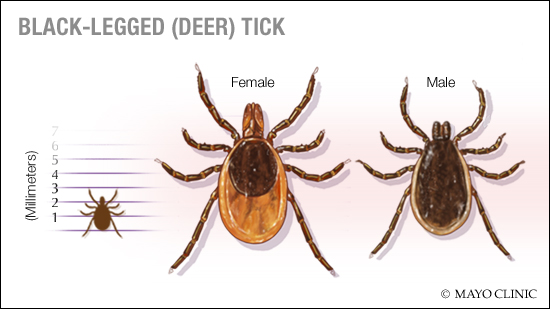Infectious Diseases

July 5, 2022
Scientists are studying why tick-borne infections, including Lyme disease, are on the rise and why ticks are expanding into new geographic areas. Lyme disease, the[...]
April 25, 2012
April 23, 2012
March 30, 2012
January 6, 2012
Explore more topics
 Sign up
Sign up

Mayo Clinic Connect
An online patient support community
